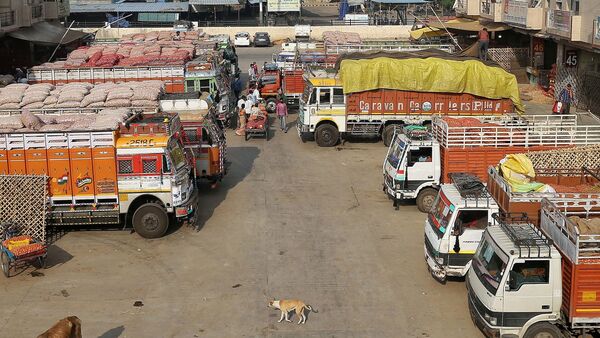- India’s commercial vehicle industry urges regulators to adopt real-world CAFE testing and seeks an exemption for N1 vehicles due to their minimal emission impact.

View Personalised Offers on
India’s Commercial Vehicle (CV) manufacturers are asking the government to rethink upcoming fuel-efficiency regulations, arguing that the current proposals do not match the realities of freight movement across the country. The discussion gained momentum during Tata Motors’ latest quarterly analyst interaction, where the company outlined a joint industry position on the next phase of Corporate Average Fuel Economy (CAFE) norms.


CAFE standards, widely used around the world to bring down carbon emissions, set average fuel-efficiency targets for an automaker’s fleet. But truck makers say the draft rules rely on testing methods built around fixed-speed laboratory evaluations, procedures they claim offer little insight into how medium and heavy-duty trucks behave in day-to-day operations.
Also Read : Explained: Why R C Bhargava thinks India’s CAFE norms need a rethink
Why do CV makers want a different metric?
The industry’s proposal hinges on replacing constant-speed fuel tests with a model that captures the unpredictability of commercial trucking. The Society of Indian Automobile Manufacturers (SIAM) has already written to the Bureau of Energy Efficiency and the Ministry of Road Transport & Highways with a unified recommendation.
Instead of continuing with conventional test norms, manufacturers want regulators to adopt the Bharat Vector Tool, also known as the Vehicle Energy Consumption Tool. Unlike standardised testing, this system simulates realistic driving patterns, changing gradients, varying loads, traffic interruptions, and other conditions that can dramatically alter how much fuel a vehicle needs and how much CO2 it emits.
For the heavy end of the sector, which handles everything from long-haul freight to high-stress intra-city logistics, this data-driven approach is seen as a more credible way to evaluate efficiency. Companies argue that it aligns emissions measurement with real usage rather than an idealised laboratory environment.
Why are smaller CVs being treated differently?
On the lighter end of the market, the industry is asking for a more lenient view. Tata Motors confirmed that manufacturers have jointly sought an exemption for light commercial vehicles (LCVs) and models categorised as N1.
Their reasoning is largely numerical: these vehicles consume a tiny fraction of the total fuel burned in India’s transport ecosystem, under 2 per cent, and their contribution to sector-wide CO2 output is even smaller, staying below 1 per cent. Applying the same set of fuel-efficiency requirements to this category, companies argue, would deliver negligible environmental benefit while increasing compliance complexity.
As the government works through the next stage of CAFE regulations, manufacturers are urging policymakers to separate the needs of heavy-duty fleets from those of smaller cargo vehicles and to anchor efficiency rules in real-world conditions rather than theoretical testing. The outcome will carry significant implications for India’s ongoing efforts to cut emissions while keeping its logistics network moving.
Get insights into Upcoming Cars In India, Electric Vehicles, Upcoming Bikes in India and cutting-edge technology transforming the automotive landscape.
First Published Date: 14 Nov 2025, 19:54 pm IST







